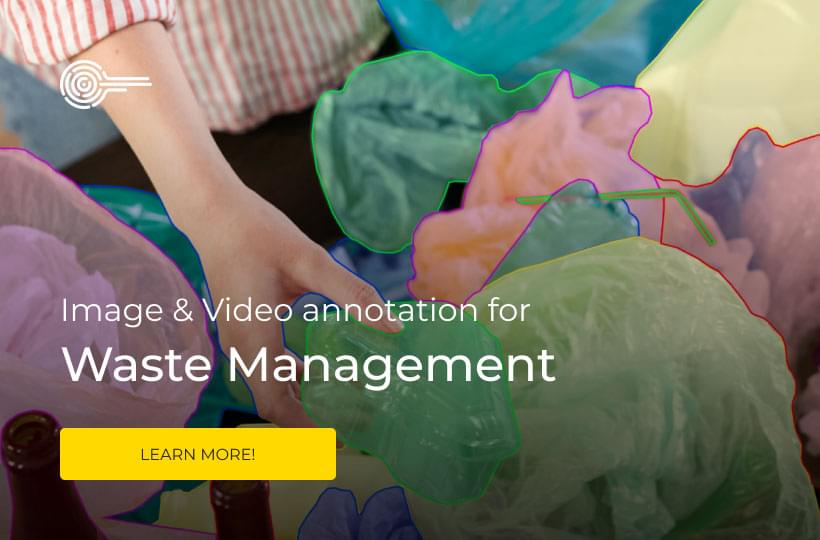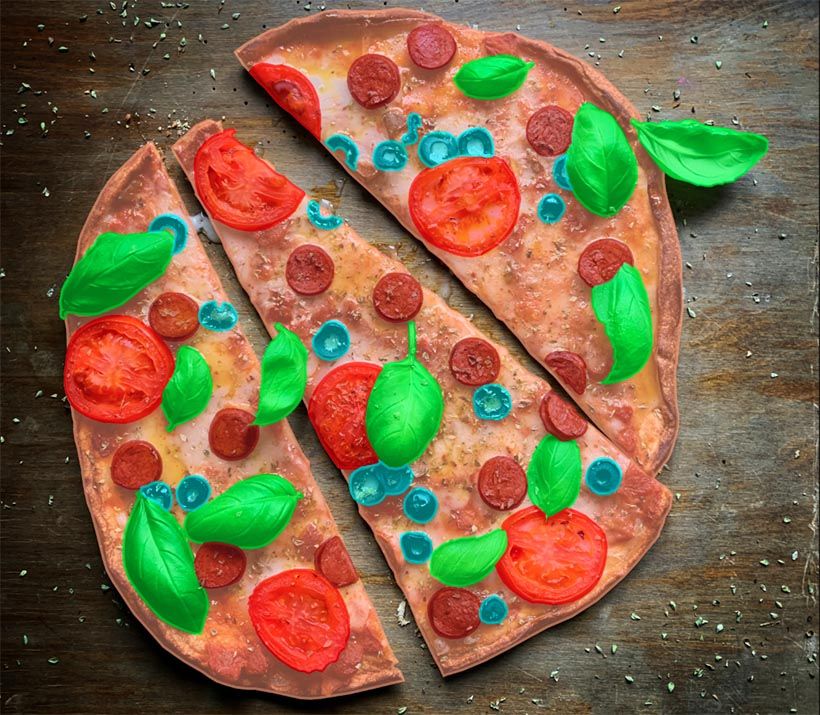AI Data Annotation in the Food Service Industry
The food service industry is enormous and growing. Companies such as Starbucks and McDonald's bring in billions of dollars. However, the industry faces many challenges. For example, it suffers from a lack of workers, high labor costs, and increasing competition.
Many industries have revolutionized their operations using AI data annotation. In food service, AI can improve the quality of food service and increase sales and efficiency. In this article, you'll discover how data annotation works in food service. And learn why it's crucial for helping businesses grow.
How AI data annotation improves the food industry
Food service is a massive industry that employs millions of people. But it also has issues like food-borne illnesses and food waste. AI technologies can help improve the food industry in many ways.
AI is an important development in the food service industry. It can help reduce waste and increase productivity. In addition, it can lead to higher revenue and better customer satisfaction with more efficient ordering and delivery.
Analyze and identify customer behavior and needs
Personalize customer experiences using AI to create custom experiences. AI can help businesses better understand the needs and desires of their customers. AI analyzes how people interact with your product or service and help you identify patterns in user behavior. These insights lead to new ideas for improving your offerings. You can tailor future interactions by analyzing data on past customer interactions.
Optimize inventory management and pricing
Manage your inventory more effectively. Identify trends in sales, demand, and other factors that affect your supply. Then, it can price products based on need, competition, and production costs. As a result, you reduce losses from overstocking or underselling. It can also help you find opportunities for sales and price adjustments.
Predict menu offerings likely to drive sales
AI data annotation can help predict the best items for menus in a restaurant business. Machine learning models can use data on customer preferences and trends in local demographics to determine the most popular foods.
This data can help you avoid over-ordering or under-ordering, which both waste money. It can also help you create new menu items that appeal to a broader audience or adjust existing offerings if they're not working as well as expected.

Optimize food production processes
Optimize your food production processes by identifying waste, inefficiencies, and other areas where there's room for improvement. It can also help you recognize trends that affect your business, such as the rise of veganism or gluten-free diets. It can track the temperatures of ingredients to ensure that they don't spoil. It can also adjust recipes based on what ingredients are available at any given time.
Accurately calculate delivery times
The best pizza delivery services can automatically calculate the time it takes to deliver your order based on distance, traffic patterns, and other factors. This feature allows you to estimate delivery times more accurately and ensure that your customers get their food as quickly as possible.
With a food delivery app, you can accurately calculate how long it will take to deliver each order. This capability allows you to plan your routes and figure out which drivers need to be assigned where.
Detect food-borne pathogens
Detecting food-borne pathogens can be difficult and time-consuming. They can be hard to detect in food in tiny quantities. You may have to test samples from different locations on the same or multiple products before finding any signs of these pathogens.
Machine learning makes it possible to predict the presence of food-borne pathogens in food using image analysis. This powerful tool lets you test whether a food contains pathogens without having to inspect it physically. For example, you can accurately predict the presence of salmonella and listeria.
Sort food items
Sort food using machine vision. You can use a camera to scan foods and sort them into categories, such as vegetarian and gluten-free. You can also detect the quality of your foods. For example, you might use computer vision to identify blemishes on fruits and vegetables or spots on meat. It can also detect the presence of foreign objects, such as plastic bags or glass fragments. You can use this technology in food processing plants and retail stores.

Using a camera to sort food allows you to eliminate human error. For example, if you're sorting fruits and vegetables by size, it's easy for employees to miss a few items. Using machine vision instead of humans, you can ensure that every item is accounted for in your inventory.
AI data annotation is shaping the food service industry
With the help of AI data annotation, restaurant owners can provide better customer service and deliver a more consistent experience for their customers. An AI data annotation tool can help you develop accurate training data. In turn, you can provide your customers with the best possible experience.
By using AI to analyze and interpret your restaurant's data, you can gain insights that will help you improve customer satisfaction and increase revenue.
Machine learning tools can help you analyze your food and labor costs or track how much time is spent on each task in the kitchen. This information will allow you to determine which menu items are most profitable and where you should focus your efforts on improving your service or expanding.
Conclusion
The food industry is poised to change in a big way, and AI data annotation will play a significant role in the future. It's already here, helping food service providers make better decisions. With its ability to sort through large amounts of data faster than humans ever could—and with minimal human input—AI has the potential to revolutionize this industry from top to bottom.
Use Keymakr to annotate your data, and you'll be on your way to taking advantage of this cutting-edge technology.